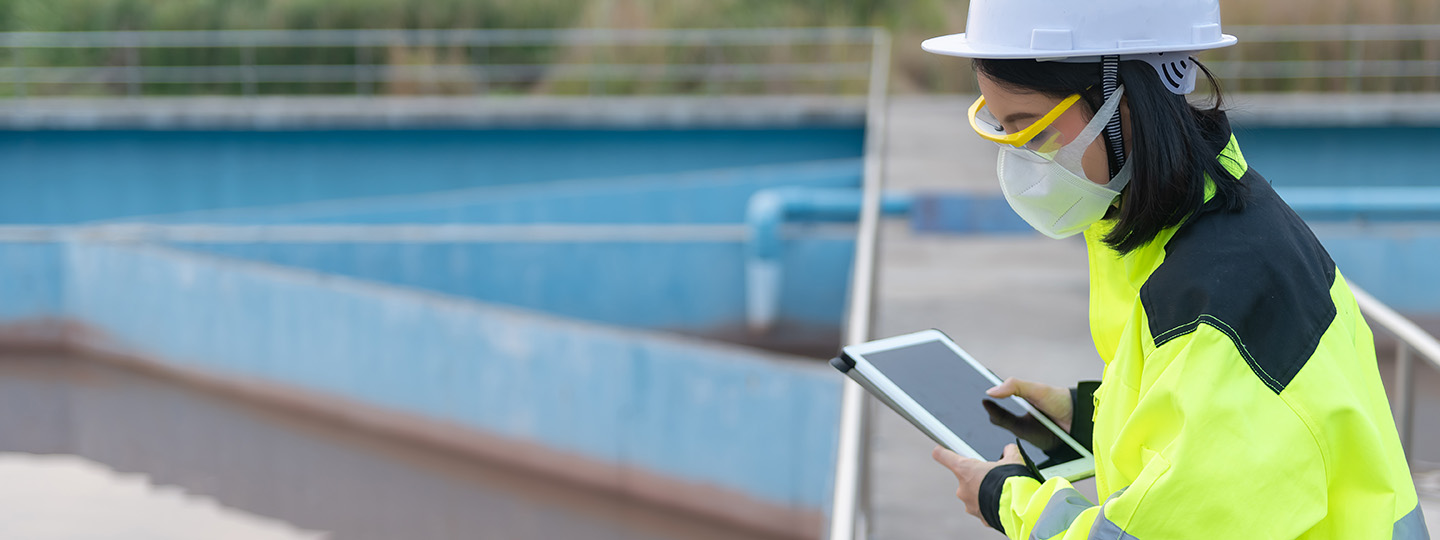Like many municipalities, Prague has continued to tighten its environmental requirements for wastewater. Veolia Česká Republika, which serves more than 1.5 million local customers, has skillfully managed to comply with 1.0 mg / liter phosphorous limits while taking additional steps to improve their environmental performance and reduce their carbon footprint. Kemira’s advanced water treatment solution, KemConnect™ P, has been instrumental.
Veolia keeps Prague’s wastewater pristine with KemConnect™ P

Veolia Česká Republika
serves more than
local customers in Prague
Compliance with
phosphorus limits
Phosphorus precipitation costs
reduced by almost
with Kemira KemConnect™ P
“Sustainability is a large part of our company’s multifaceted performance strategy,” explains Ondrej Benes, Veolia’s Technical & Commercial Director. “Partnering with Kemira helps our companies achieve our commitment to the environment, climate and ─ above all ─ to our customers.”
Indeed, wastewater treatment has an impact on climate change mitigation and adaptation, both linked to United Nations Sustainable Development Goal 13. Naturally, water treatment also plays an important role in delivering UN SDG 6, clean water and sanitation for all.
Partnering with Kemira helps our companies achieve our commitment to the environment.
However, in addition to contributing to big global goals like the SDGs, Veolia has also had to focus on the very local issue of phosphorus removal from Prague’s wastewater.
Learn more about sustainable development goals:
Meeting multiple challenges
When trying to reduce the level of phosphorous in their effluent, the company faced three main challenges:
- reliability,
- carbon footprint and
- costs.
Ondrej Benes and his colleague, Technical Director Petr Sýkora, Ph.D., said Veolia considered biological and chemical phosphorus removal. At first, they thought a biological process seemed very attractive because of lower operating costs. However, they soon became concerned about reliability.
“Biological solutions are less stable. A sudden collapse could release large amounts of phosphorus into the effluent, putting the local environment at risk,” Sýkora explains. This would also jeopardize Veolia’s compliance.
It was clear they couldn’t depend on biological treatment alone. Chemical precipitation was the only way to guarantee the company could reduce phosphorus levels, and keep them under control.
But here too, Veolia faced a dilemma. They were concerned if increased coagulant use would mean higher cost and decreased performance in terms of carbon footprint. So how could Veolia’s plant in Prague implement the necessary chemistry without increasing its environment footprint? And how could they do it cost effectively?
Putting KemConnect™ P to the test
In 2019, Veolia’s technical team began looking for more efficient control systems as a potential solution to the problem. They tested various options, gradually optimizing phosphorus removal while evaluating control strategies like combining different dosing sites and type of doses. Ultimately, they found an advantage with Kemira KemConnect™ P, which brings together world-class chemistry with smart technologies for automated and optimized phosphorus removal. The result is better environmental performance at a lower cost.
Veolia were able to reduce the cost of phosphorus precipitation on their existing water line by almost 34%.
The Veolia team liked that KemConnect™ P offered specific control over coagulant consumption, improved precipitation costs, and gave their team better control of the entire process. They were able to reduce the cost of phosphorus precipitation on their existing water line by almost 34%.
Milan Lánský, one of Veolia’s technical experts who worked on implementation, says stability is another advantage. “Our consumption is more stable so costs can be better planned.”
He adds, “Kemira’s solution helps significantly, not only in financial terms but, more importantly, in terms of environmental compliance for discharge permits, as well as for Veolia’s own sustainability KPIs like carbon footprint.”
But the perks of a partnership with Kemira go beyond technology. Lánský points out that part of the value Kemira provides is local support on the ground. “I especially appreciate their quick reaction and ability to meet demands even in situations like COVID-19 pandemic,” he says.
A satisfied customer, Veolia Česká Republika is running trials with KemConnect™ P at two additional sites nearby.
